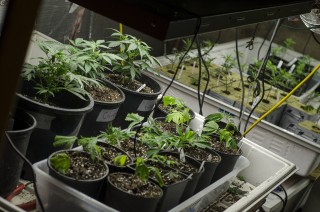Following the legalization of cannabis, the government of Zimbabwe has approved the request of 37 investors to produce and trade marijuana for scientific and medicinal reasons. This comes after more than 150 foreign and local investors indicated interest.
After much deliberation, Zimbabwe approved the use of marijuana for solely medicinal and scientific use in April 2018. Thus, becoming the second African country to legalize it after Lesotho (a small state surrounded by South Africa).
This new approval of investors has called for a proper and detailed study, not because of the economic gains available to Zimbabwe, but also major concerns such as moral and religious reasons, drug abuse and trafficking.
A report shows that between January to December 2015, 5445 Zimbabweans comprising of youth between 15 to 35 years of age were arrested based on several drug-related issues, while 57 percent of psychiatric-related issues are as a result of drug and alcohol abu
Mental Health Manager, Ms Eneti Siyame says that the main challenge to addressing the abuse of drugs in Zimbabwe was due to the easy access of the same drug, especially after rehabilitation. The legalization of cannabis may be used for the right purposes but on the other hand, it could also be accessible by the public or perhaps “black market” distributors. The production, distribution and the sales of cannabis will likely become a problem if these new legalization policies are not properly managed.
Even if the country’s access to cannabis is put under close watch, what about its exports into other countries? Countries like South Africa, Mozambique, Zambia and Botswana share borders with Zimbabwe and once access any of these countries can access the drug, it could create an illegal market in other countries.
The shift from making cannabis a criminal act to an economic gain cannot be overlooked. While the future of youths in Zimbabwe is threatened, the income cannabis generates for the country is something to dwell on.
The global cannabis business is worth $24 billion per year and with the current state of Zimbabwe, such monetary yields will go a long way in improving its citizens’ standard of living. “At least US$24 billion is required to revamp Zimbabwe’s antiquated road network, which has outlived its lifespan by more than four decades.”
In a country like Zimbabwe where unemployment is on a rise, various industries like Agriculture, tourism, mining can be improved and job opportunities can be created. Agriculture used to be the mainstay of the economy, but after the seizure of many white-owned commercial farmlands, most of the lands were used for subsistence farming.
The mining sector is also one that can benefit from a $24 billion economic yield, with mineral resources like iron ore, platinum, coal, if this sector is invested and properly managed, it could yield more foreign investors and its impact on the economy will be significant.
The government of Zimbabwe is currently working on giving license to the selected investors in line with Statutory instrument 62 of 2018 stated “Dangerous Drugs production of Cannabis for Medicinal and scientific use Regulations,” said Deputy Minister for Lands, Agriculture, Water, Climate and Rural Resettlement, Vangelis Haritatos.
“…cabinet has approved about 37 of them and they will be issued with licenses. For now, we are in the process of registering them.”
Licenses given to investors last 12 months pending renewal and the Zimbabwean government is strongly looking into illicit dealing of Cannabis. The medicinal and scientific use of cannabis can also help people living with cancer, spinal cord injury, neuropathic pain and many more.








